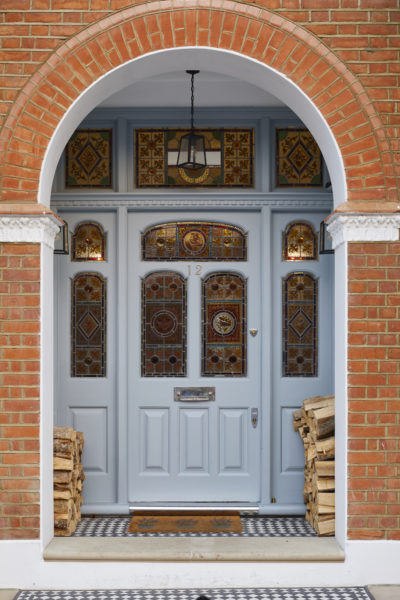Our clients often ask us what the requirements are for their project in respect to Party Wall Awards and what the processes involved are. We therefore put some common questions to Stanley & Strong who are Chartered Surveyors specialising in Party Wall matters. Here’s what they had to say:
When do I need to consider Party Wall issues?
Party Wall issues arise if you are building a new wall on a boundary or when you are undertaking works to a shared wall, i.e. a “Party Wall”. This could be a Party Wall between two terraced properties or even a garden boundary wall.
The Party Wall Act also applies where excavations take place within 3 metres of any neighbour’s structure (main building or external structure), subject to these excavations extending deeper than the said structure’s foundations. There is also a 6 metre rule but this is only relevant to basements where particularly deep (e.g. piles) excavations are proposed.
Technicalities aside, the very simple answer for Londoners is that if you are doing internal structural works, a loft or a rear extension you are almost certainly going to need to consider the Party Wall Act!
What is a Party Wall Award and what is included in it?
A Party Wall Award is a legal document, drawn up by one or two Surveyors, which authorises the element of your works which fall under the Party Wall Act.
It sets out, in relation to the proposed works, the rights and responsibilities of the owners undertaking the works as well as those of the neighbours – it may specify in significant detail how the works are to be carried out.
Will I always need an Award?
If your proposed works trigger the Party Wall Act, then you are legally required to serve Notice on the affected Adjoining Owners.
If a neighbour (an “Adjoining Owner”) consents to your proposed works there is no Party Wall Award.
However, if a neighbour dissents to your Notice then a Party Wall Award is needed. Your neighbour can opt to dissent and agree to a single “Agreed Surveyor” or they can choose to have their own surveyor to work alongside your surveyor.
Although the word “Dissent” infers that they do not want the works to take place or that they can request that they are stopped, this is not the case. A dissent does not stop the works from taking place but requires an Award is put in place first.
An Adjoining Owner may wish to dissent if they have certain concerns about the works that are taking place. Even neighbours that have a very good relationship may choose to dissent. In essence, a dissent would result in the Surveyor(s) conducting a review of the relevant architectural, structural and contractor‘s proposals. The surveyor(s) would then authorise the works by way of the Party Wall Award once he/she is happy with all of the proposals and supporting documentation.
How long does it take to draw up an Award?
We usually recommend that clients allow a minimum of 2 months, ideally 3 months, for the Party Wall process to run its course.
The procedure effectively provides an Adjoining Owner up to 4 weeks to decide on their response to a Notice. The process is therefore highly dependent on them being proactive. If they dissent then an Award usually takes 4 – 6 weeks to agree.
Furthermore, the majority of works which fall under the Act are also subject to a 2 month Notice period. Therefore, even if a neighbour consents to the proposed works, they will still need them to waive this period for you to be able to start earlier.
Of course, you may have friendly and proactive neighbours who all consent and waive the Notice period within a few days but from our experience it does take time!
What is a Schedule of Condition and what is the benefit of this?
A Schedule of Condition is a detailed text and photographic record of an Adjoining Owner’s property and is taken prior to commencement of the works.
It is an essential document whether a neighbour consents or dissents to your works.
It protects both parties – you will be protected from any claims relating to pre-existent damage and your neighbour is protected in the event of any new damage occurring.
There are leasehold flats next door. Who do I need an agreement with?
Freeholders will always be entitled to receive a Notice.
For a loft or internal structural works (e.g. the removal of a chimney breast), Notice will also be due on any adjacent leaseholders.
For side returns or any works including excavations, it is likely that every leaseholder which falls within 3 metres (measured horizontally) will require Notice. The process therefore needs to be carefully managed to minimise cost exposure.
What are the benefits of the Party Wall process?
The process is a legal requirement but it is important to note that it is an enabling Act made to allow owners to undertake works. Particularly, in the event of a major neighbourly dispute, the Act in most cases will allow a Building Owner to proceed with works.
The neighbours delegate matters to Surveyors who act impartially, apply the Act and make a legally binding decision
A key example is that the Act can provide the right of access onto an Adjoining Owner’s land to carry out works. It is an absolute right and the police can be asked to assist where access is not provided.
Access is not on the top consideration list for most people but we are sure that it is one of the first considerations Run Projects will assess when taking on a project.
Who pays for the Party Wall Surveyors?
It is usually the Building Owner (who is undertaking the works) who is responsible for the fees of all the surveyors and any associated costs.
What are the costs of a Party Wall Agreement?
Most surveyors (including ourselves), should be prepared to provide a fixed fee quotation for small residential works (i.e. excluding basements). The cost is then dependent on the Adjoining Owners’ response to a Notice.
For a consent and a Schedule of Condition, most surveyors would charge around £600 plus VAT and for a Party Wall Award the cost is usually around £1000 – 1200 plus VAT.
The unknown factor is the response of an Adjoining Owner. If they do appoint their own surveyor then unfortunately you need to budget between £1000 – £1500 plus VAT for that surveyor’s fees.
For further advice please contact Jean-Pierre or Sarah from Stanley & Strong on surveyor@stanleystrong.co.uk or 0208 396 6180.
If you’d like to discuss your building or renovation project please do not hesitate to contact Run Projects: hello@runprojects.co.uk or 0207 384 1160




